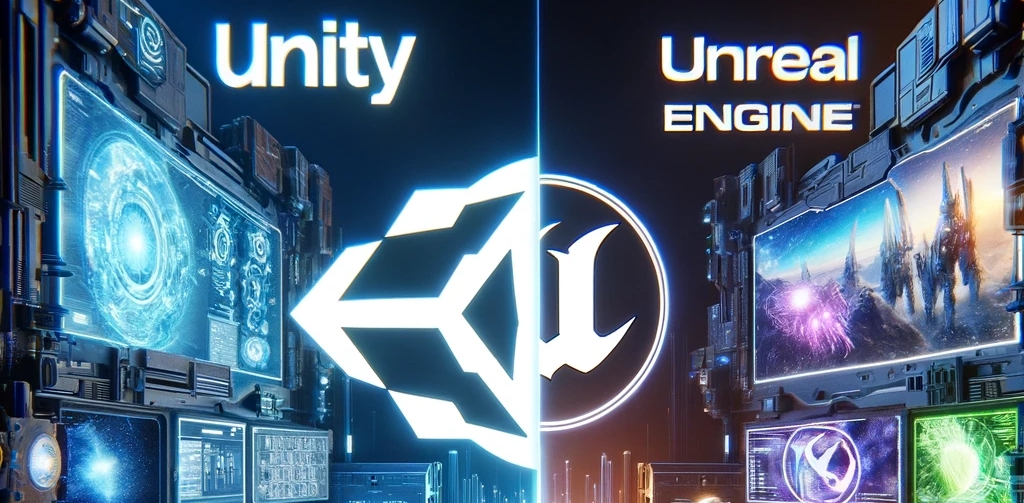
When embarking on a new game development project, choosing the right engine is a pivotal decision that can dictate both the development journey and the final game’s success. Unity and Unreal Engine are two of the industry’s most powerful and popular game development platforms, each with its unique strengths. This guide aims to provide an insightful comparison to help developers make an informed choice that aligns with their project needs and team capabilities.
Introduction to Unity and Unreal Engine
Unity is widely acclaimed for its user-friendly interface and versatility across a broad range of game types, from mobile to console to VR. It uses C# for scripting, making it accessible for beginners and professionals alike. For more information, visit Unity’s official website.
Unreal Engine offers unparalleled graphical capabilities and a robust toolset ideal for creating visually stunning AAA games. Its use of C++ and a visual scripting system called Blueprints caters to both seasoned programmers and those new to coding. For further details, check out Unreal Engine’s official website.
Ease of Use
Unity stands out for its ease of learning and use, making it a favorite among indie developers and educational settings. Its comprehensive documentation and active community forums provide extensive support.
Unreal Engine, while more complex, offers Blueprints for visual scripting, allowing developers without deep programming knowledge to still create intricate game mechanics.
Graphics and Performance
Unreal Engine is at the forefront of graphical innovation, ideal for projects where cutting-edge visual quality is paramount.
Unity has significantly improved its rendering capabilities, offering customizable options for developers aiming at both high-end and mobile platforms.
Platform Support and Ecosystem
Both engines support a wide array of platforms, but Unity has a slight edge in mobile and web development due to its optimized performance for these platforms.
The ecosystems for both Unity and Unreal provide extensive asset stores, facilitating access to resources that can accelerate development timelines.
Community and Support
The Unity community is vast, offering a wealth of learning resources, while Unreal Engine boasts a dedicated community and support system, with Epic Games offering grants and funding for innovative projects.
Licensing and Costs
Unity provides a free personal edition and tiered subscription plans, catering to different studio sizes and revenue caps. Visit Unity Pricing for more details.
Unreal Engine adopts a royalty model, with free access to its full suite of tools but a royalty fee on game revenues beyond a certain threshold. Learn more at Unreal Engine Licensing Options.
Conclusion: Which Engine to Choose?
Your choice between Unity and Unreal Engine should be guided by your project’s specific needs, team expertise, and desired graphical fidelity. Unity is ideal for developers seeking a user-friendly platform with broad platform support, especially for mobile and VR projects. Unreal Engine is suited for those prioritizing high-end graphics and performance, particularly for PC and console games.
Both Unity and Unreal Engine are powerful tools that can bring your game development vision to life. By considering your project requirements and exploring the resources and support each engine offers, you can select the engine that best fits your development goals.




